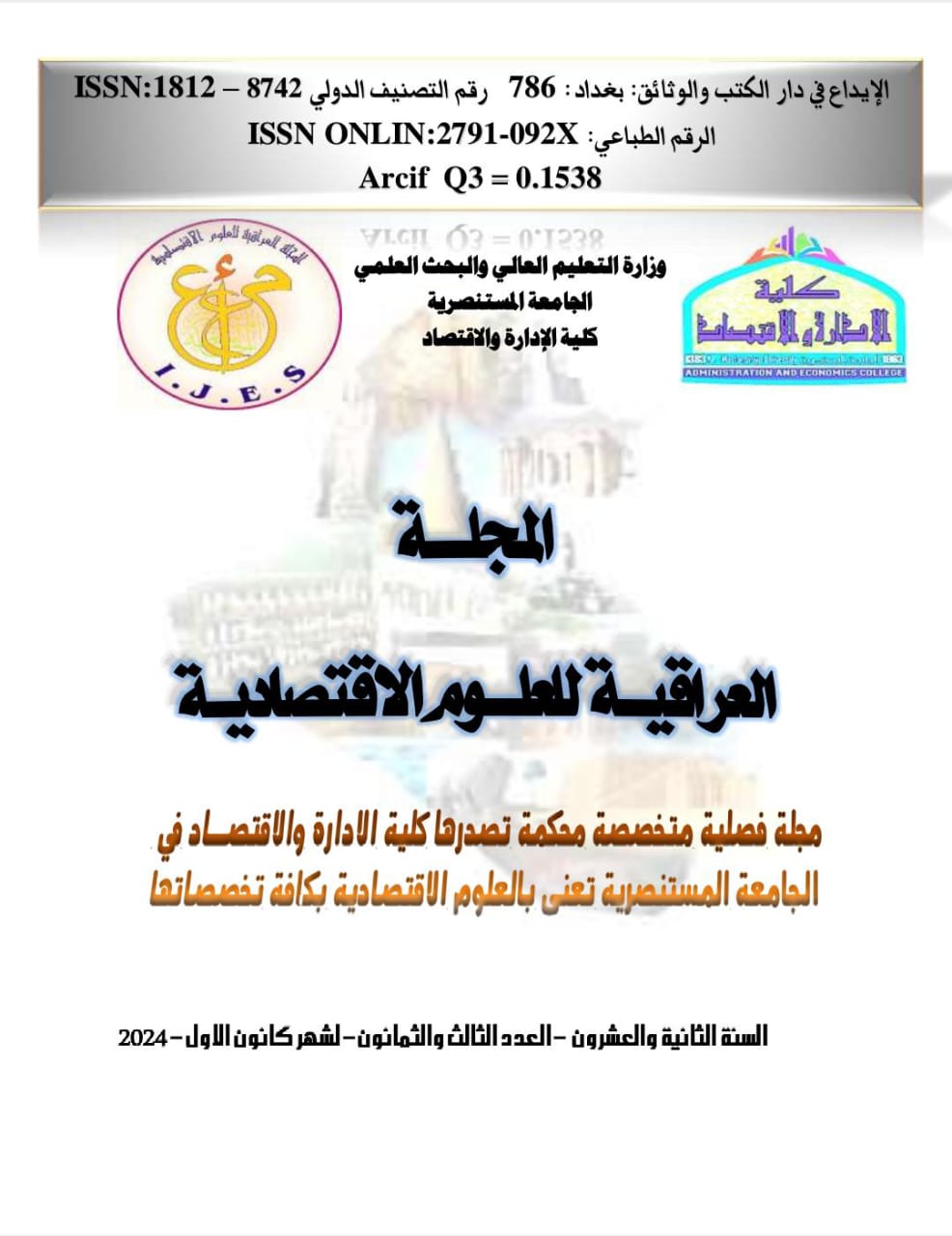The impact of Iraqi dinar exchange rate fluctuations on local and foreign investments during the period (2003-2023): An econometric study
DOI:
https://doi.org/10.31272/9r6sfk26Keywords:
Iraqi dinar exchange rate, domestic investment, foreign direct investment, interest rate on loans, economic growth rate.Abstract
The exchange rate is one of the economic variables used in economic policies to achieve economic stability, as changes in exchange rates affect most monetary, financial and real variables. This study aims to analyze the effects of changing the Iraqi dinar exchange rate on domestic and foreign investment during the period (2003-2023). To achieve this goal, the study relied on the descriptive and analytical approach that relies on time series data and the dynamic least squares (DLOS) model to show the effects of the Iraqi dinar exchange rate on foreign direct investment and domestic investment. Each of these (interest rate on loans, economic growth rate, and security and political instability) was used as auxiliary variables. Finally, the study reached several conclusions, including: There is a positive relationship between the Iraqi dinar exchange rate, foreign direct investment and domestic investment, i.e.: The standard results showed that there is a positive relationship between the Iraqi dinar exchange rate, domestic investment and foreign investment. This positive effect is due to the policies of the Central Bank of Iraq and its attempts to achieve monetary stability. However, the effect of the exchange rate on domestic investment was greater compared to foreign investment due to the heavy reliance on imports and the impact of currency fluctuations on production costs. Foreign investment is often less affected by currency fluctuations due to its ability to hedge financially and focus on foreign markets. The study suggested that adopting a flexible exchange rate regime alone cannot be a successful solution to attract foreign investment. Rather, attention must be paid to the major economic balances, the stability of which is a prerequisite for attracting investment. General economic stability, including inflation, fiscal deficit, and public debt levels, plays a crucial role in enhancing the confidence of foreign investors. Without achieving this stability, a flexible exchange rate regime may become ineffective in achieving its economic objectives.
Downloads






